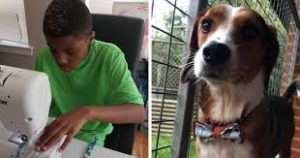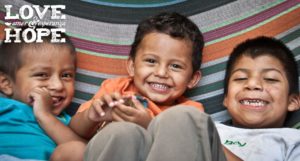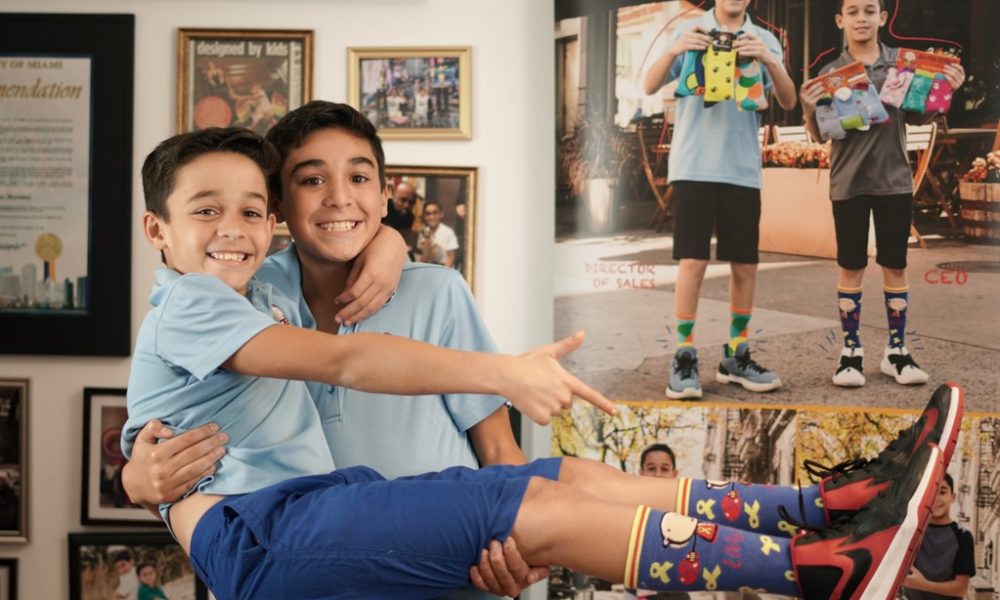Serengetee is a good example of the way that a company started by young people, especially college students, can grow to be something really cool, big, and impactful.
Serengetee today is a social venture clothing and accessories company that is known mostly for its tee shirts, but also for its hats, scrunchies, and more. Two college guys started it seven years ago when they met traveling abroad for a semester. When exploring local markets in different countries they were intrigued by the different fabrics they saw. They wanted to do something good with these fabrics and wanted to create a clothing company surrounding these fabrics and even though they had no previous experience in fashion they began to experiment with what they could do.
Their mission became this: they would buy fabric from all around the world, supporting local artisans and craftsmen, honoring generations-old traditions, and preserving and sharing these bits of culture and history by attaching the story of each specific fabric to the piece of clothing it became a part of. They then give 10% of their profits to social grassroots ventures across the world.
Serengetee is most known for their “pocket-tees”, which are colorful tee shirts with breast pockets crafted from the fabrics around the world. These tee shirts come with the story of the fabric and craftsmen who made it, raising awareness for that specific area. Sometimes these fabrics were made by people who were at-risk, or who are themselves part of a social venture.
Over the years they have expanded from tee shirts to hats, backpacks, scrunchies, beanies, socks, and even jewelry, but they stay true to their mission in everything they do.
I think that Serengetee is an excellent example of how to do a social venture well. I do not know much about the logistics of their business and how that all works, but from what I can see, they did a good job of starting focused in their mission, their goals, and their methods. In the years of growth since then, they have done what seems to me to be a good act of discernment in expanding certain aspects of their methods and goals by including diverse products, but not diverging too far from their brand, and staying true to their mission. Too many social ventures, especially by young entrepreneurs, are either far too specific or try to diversify themselves much too quickly. But from what I can see, they have avoided this pitfall.
I have followed the growth of Serengetee for the past three years or so and I am interested to see where they go from here, and what we can continue to learn from them.




 Milton S. Hershey’s story didn’t end with the successful establishment of the Lancaster Caramel Company, instead, he continued to explore ways to improve the world around him within the realm of what he knew best-candy. At the World’s Colombian Exposition in Chicago he was introduced to chocolate making which inspired him to make this then delicacy accessible to the general public. He sold his caramel company for one million dollars, and founded the Hershey Chocolate Company which (as we know) became even more successful than his prior endeavor. The amazing part of Hershey’s story is not his drive, nor his multiple successes, but what he chose to do with these blessings. Instead of leading the life of luxury he had earned, Hershey chose to live modestly and cultivate his community to create better opportunities for those around him. He built churches, parks, housing, transportation, and other amenities for his workers, and with no children of his own, he founded a school to give other boys and
Milton S. Hershey’s story didn’t end with the successful establishment of the Lancaster Caramel Company, instead, he continued to explore ways to improve the world around him within the realm of what he knew best-candy. At the World’s Colombian Exposition in Chicago he was introduced to chocolate making which inspired him to make this then delicacy accessible to the general public. He sold his caramel company for one million dollars, and founded the Hershey Chocolate Company which (as we know) became even more successful than his prior endeavor. The amazing part of Hershey’s story is not his drive, nor his multiple successes, but what he chose to do with these blessings. Instead of leading the life of luxury he had earned, Hershey chose to live modestly and cultivate his community to create better opportunities for those around him. He built churches, parks, housing, transportation, and other amenities for his workers, and with no children of his own, he founded a school to give other boys and

 proud CEO while his mother served as president. A few months before becoming official, the Martinez home as well as close friends and families’ homes were bursting at the seams with boxes full of wacky socks. The company become a family bonding experience as Sebastian’s older brother Brandon used his socializing and presentation skills to market the product while Sebastian’s father Fabian’s excitement and energy kept the whole family involved and encouraged.
proud CEO while his mother served as president. A few months before becoming official, the Martinez home as well as close friends and families’ homes were bursting at the seams with boxes full of wacky socks. The company become a family bonding experience as Sebastian’s older brother Brandon used his socializing and presentation skills to market the product while Sebastian’s father Fabian’s excitement and energy kept the whole family involved and encouraged.